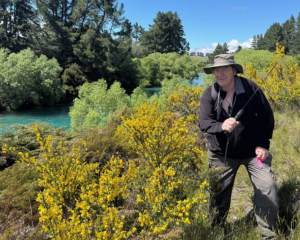More resources need to go into the fight to stop wallabies moving into Otago from their South Canterbury home to prevent a problem similar to those caused by rabbits and wilding pines in the region, some Otago regional councillors say.
''We need to chuck as much resource as possible at it,'' council chairman Stephen Woodhead said at a meeting this week.
''If we don't act now, in 10 years' time we'll be really regretful.''
Wallabies are a pest under the regional council's pest management plan as they graze on grass, small trees and shrubs, putting forestry plantation, pasture and native plants at risk.
Mr Woodhead's comments followed a report to the council's regulatory committee outlining how wallabies were sighted in the Naseby area late last year and their presence was confirmed by staff.
A camera had been set up to confirm visually the presence of wallabies, and bait stations were laid and two pre-feeds set out.
Once the number of wallabies in the area had been confirmed, poisoning and/or shooting them was planned to remove them.
Council environmental monitoring and operations manager Jeff Donaldson said unlike past sightings of wallabies in Otago, which were thought to be of those illegally released by people, those seen now were coming into the region through the Hawkdun Range.
As part of the council's review of its pest plan, it would see if the problem was growing or if it continued to be small and isolated.
Mr Woodhead said landholders struggled to control wallabies in those areas where they were established.
He urged the council to put whatever resources it could into pushing wallabies back into South Canterbury.
Council chief executive Peter Bodeker said little money or resources had been put aside for wallaby control in the upcoming annual and long-term plans.
If councillors wanted more resources to fight the problem, a report would be needed.
Councillors agreed a report needed to be presented to the council on the wallaby situation, funding implications of more control work and the work being done in South Canterbury to control the pest.












